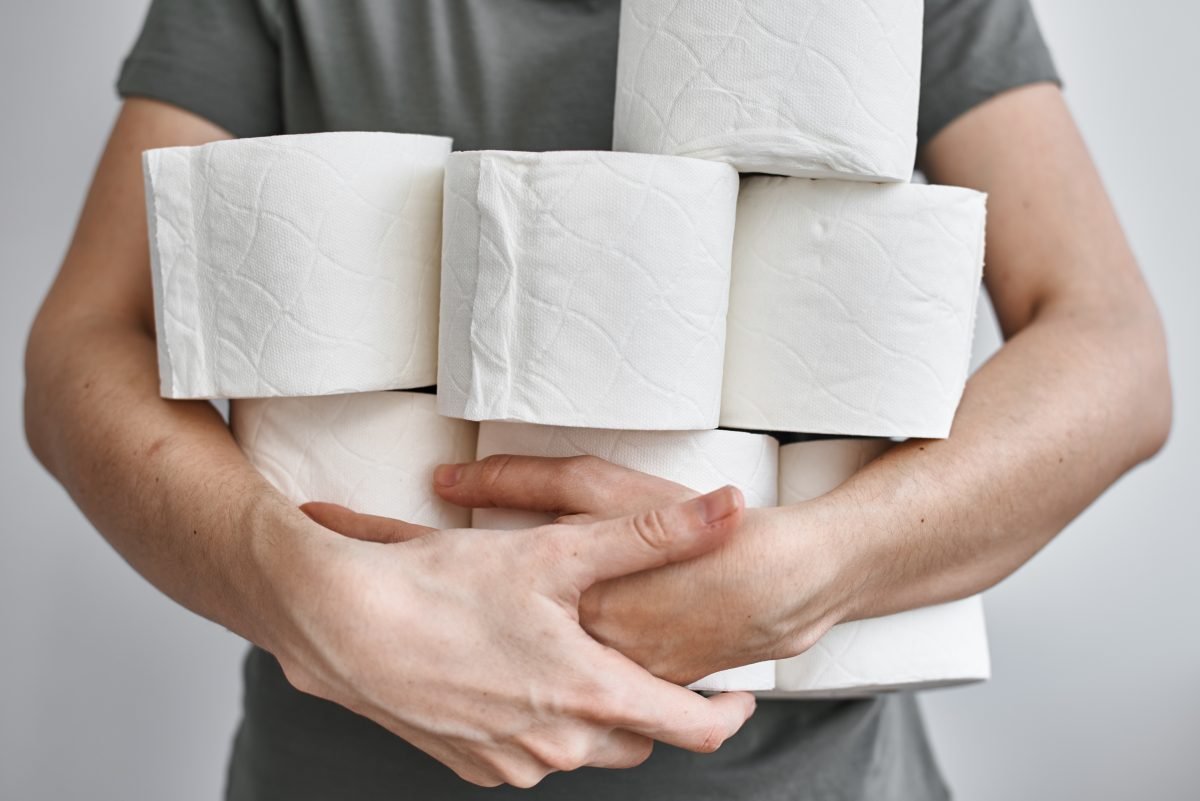Does nicotine make you poop?
- Lifestyle Advice
You may wonder “does nicotine make you poop”. Is there a connection between them both?
This article will discuss what nicotine is, how it can affect your body and your gut, and if it really makes you poop or not.
Please note: This article does NOT replace medical advice. If you are looking to stop or reduce your nicotine intake, it is important that you seek medical advice first.

What is nicotine?
Nicotine is a highly addictive chemical stimulant found in the tobacco plant (1). It is one of the most used drugs and can be found in (2):
- Cigarettes
- Cigars
- Smoking cessation aids, e.g. gums and patches
- E-cigarettes
- Other inhaled agents
Why is nicotine addictive?
Nicotine triggers the release of dopamine and other neurotransmitters in your brain.
This includes endorphins that create pleasurable sensations making smoking highly addictive (3). It can stay in your body for 6-8 hours, depending on how often you smoke (4).
Does nicotine make you poop?
The research on nicotine and diarrhoea is mixed.
One study looked at the effects of coffee and nicotine on rectal tone in non-smokers (5). This is a measure of the tightness of the rectum, which affects bowel movements (6).
Participants were given 2mg nicotine, coffee, or a placebo. Nicotine only increased rectal tone by 7%, which was lower than the placebo at 10%. Coffee increased rectal tone by 45% (7).
Coffee is a natural stimulant, and the study suggested that people often drink coffee when they smoke. This can stimulate the urge to poop. This study suggests that nicotine itself does not make you poop.
Many other studies are done on people with inflammatory bowel disease (IBD). Studies show that smoking can result in a higher risk of Crohn’s disease (8).
Surprisingly, the risk of ulcerative colitis (UC) is lower in people who smoke (9). Nicotine therapy may help the symptoms of this condition, but it is only temporary (10). However, smoking carries many harmful effects and is strongly discouraged (11).
How does nicotine affect your gut microbiome?
Increasing evidence from studies done on animals and humans suggests that smoking affects the composition of the gut microbiome (12).
In a human study, smoking increased the phylum of Bacteroidetes and decreased Firmicutes and Proteobacteria compared to non-smokers (13).
In another large human study, it was found smokers had a higher infection rate of Shigella bacteria. This is an intestinal bacterium that can cause diarrhoea (14).
However, it was also found in the same study that smoking causes the stomach to produce more acid. This leads to a reduced risk of developing Vibrio cholera infections. This is another bacterium that causes diarrhoea.
All these studies are observational, and there can be many lifestyle factors that can influence the results. More research is needed to explore the link between nicotine and the gut microbiome.
How does nicotine relate to IBS?
In a recent study, nicotine dependence was found to be higher in smokers with IBS than smokers without IBS. After a year of stopping smoking, symptoms including bloating, constipation and diarrhoea were reduced by 27% in the IBS participants (15).
Another study found that the prevalence of IBS is significantly less in the smoker population. However, there is a lack of data that supports this. The study does not pinpoint why smoking has decreased the incidence of IBS (16).
On the other hand, several other studies have reported no correlation between smoking status with IBS (17, 18).
How does nicotine affect the rest of your digestive tract?
Nicotine can affect the entire body, including your digestive system. However, most research has only been done on cigarette smoking. Smoking can increase the risk of other conditions, including:
- Crohn’s disease – The gut inflammation that can cause symptoms, including diarrhoea and weight loss. Smoking can worsen these symptoms (19).
- Gastroesophageal reflux disease (GERD) – Smoking can weaken the oesophagus muscles. Stomach acid may flow backwards, resulting in heartburn and GERD (20).
- Peptic ulcers – Smoking can cause sores in your stomach lining or intestine (21).
- Colon polyps – Smoking can cause abnormal tissue growths that form in the gut (22).
- Liver disease – Smoking can put you at risk of non-alcoholic fatty liver disease (NAFLD) (23).
- Pancreatitis – Smoking can increase your risk and even worsen your symptoms of pancreatitis (24).
- Cancer – Smoking is linked to cancer of the colon, rectum, stomach, mouth and throat (25).
Support for quitting
Quitting smoking can be challenging but not impossible. Stopping can help reduce the symptoms that nicotine can cause on your body.
Nicotine withdrawal can cause constipation. It has been reported that 1 in 6 smoking quitters develop constipation. The problems can be severe in about 1 in 11 (26).
Fortunately, the symptoms typically subside over a few weeks. Here are some tips (27):
Lifestyle changes – a balanced diet, regular exercise and meditation can help break habits
- Find support – tell people around you that you want to quit smoking.
- Find a support group – other people can share their insights and support you.
- Medications – speak to your doctor about medications that can help with nicotine cravings and withdrawals.
- Nicotine replacement, e.g. a patch or gum – they can help ease yourself out of the addiction.
Summary
It remains inconclusive if nicotine makes you poop. However, smoking impacts your gut health and can influence your gut microbiome. It can increase your risk of other gut conditions resulting in diarrhoea and other symptoms.
Quitting may reduce and even reverse some of these harmful effects. Don’t hesitate to try quitting strategies or speak to your doctor to help break this habit.
Written by Leeona Lam MSc, ANutr and reviewed by Serena Bansal Registered Dietitian BSc Hons, and Kirsten Jackson Consultant Dietitian BSc Hons, RD, PG Cert